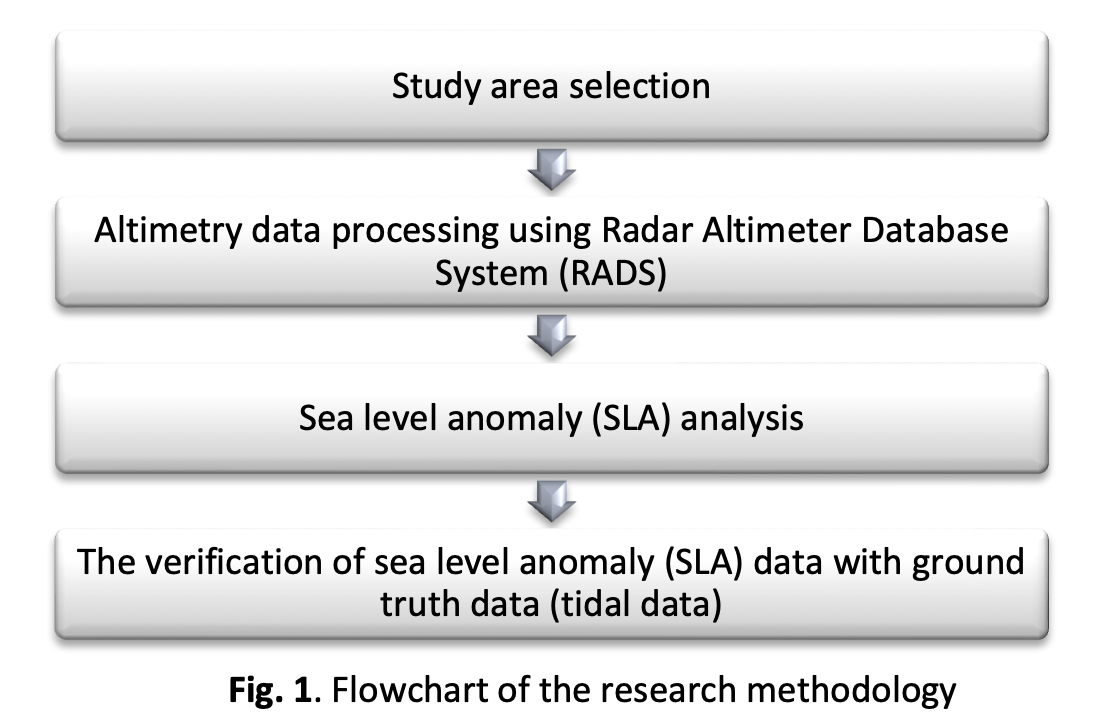The Verification of Sea Level Anomaly (SLA) Versus Tide Gauge for Geoid Modelling
DOI:
https://doi.org/10.37934/araset.42.2.89103Keywords:
Sea Level Anomaly, geoid, gravity anomaly, altimetryAbstract
The increasing long-term sea level rise is of particular interest and needs a significant investment in coastal protection procedures. The coastal sea level has been verified with tide gauges and well maintained with reliable accuracy of data since a few centuries ago. Satellite altimeter has been used for sea level study and increasingly for operational purposes. However, the precision of altimetry data in coastal areas is frequently eliminated by the geographically correlated orbit errors, which induce a regional inhomogeneous mission bias. This study presents an effort to verify sea level anomaly based on altimetry data with tide gauge stations as an early procedure to provide a good sea level anomaly data for mean sea surface, gravity anomaly, and geoid determination over Malaysian seas. The altimetry data is validated by comparing the sea level anomaly with ground truth data (tidal data) near the coastal area. A total of nine selected areas were chosen to represent the ground truth data. The findings found that the altimetry data over the South China Sea (Pulau Tioman, Geting, Cendering, Bintulu, and Kota Kinabalu) provided a good pattern, high correlation, and a minimum root mean square error (RMSE) value after the verification with tidal sea level anomaly data. However, it clearly shows that Tawau station over the Celebes Sea provides a poor pattern, poor correlation, and a high RMSE value with tidal sea level anomaly data. In conclusion, further enhancements are expected from the refined processing and filtering of altimetry data for the sea level study in the coastal zone.
Downloads




























